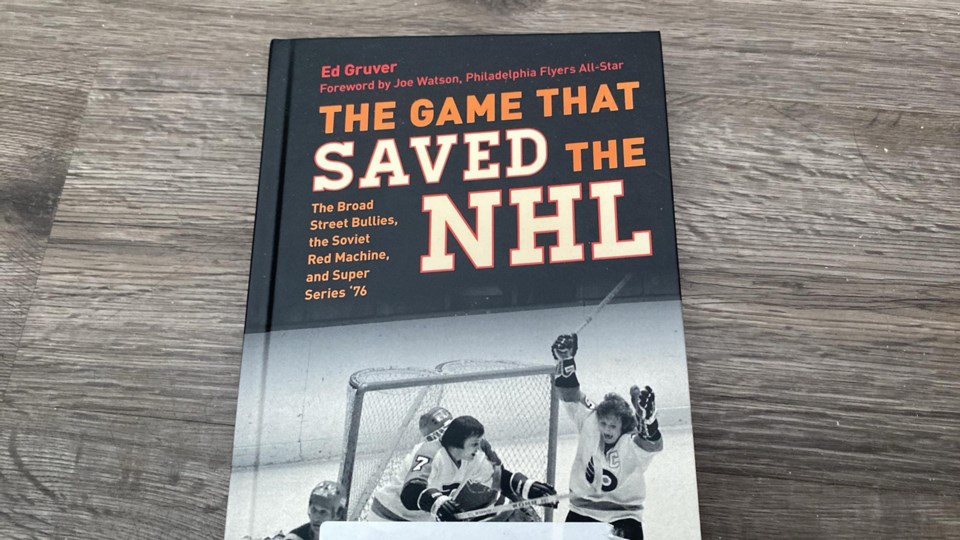YORKTON - I suppose one of the most indelible sport moments for me was the 1972 Summit Series when Paul Henderson became a national hero and it would stand to reason international hockey has always held a particular interest.
So when The Game That Saved the NHL: The Broad Street Bullies, the Soviet Red Machine, and Super Series '76 by Ed Gruver released it was one I was certainly interested to read.
Like a number of recent books on the aforementioned Summit Series, this effort was timely in the sense the people directly involved are aging and time is basically running out for a writer to get those coveted first hand accounts.
In an interview with Yorkton This Week author Gruver noted he was indeed fortunate in that regard.
“It was important to get those first-hand recollections,” he said, adding he was actually surprised how vibrant the memories of what players were thinking and feeling leading up the game were.
Of course, the game was unique because it was the first to pit champion versus champion, the Stanley Cup-winning Flyers and the Soviet’s top Red Army squad.
It was big in terms of league bragging rights and pride.
But, the game was played in the mid-1970s when US / Soviet relations were still in the midst of the Cold War, and that put definite political overtones to the series, and in particular the clash of champions.
To refresh memories, or inform for readers too young to have watched the game I turn to the publisher’s website where it is noted “in late 1975 and early 1976, at the height of the Cold War, two of the Soviet Union’s long-dominant national hockey teams travelled to North America to play an eight-game series against the best teams in the National Hockey League. The culmination of the ‘Super Series’ was reigning Soviet League champion HC CSKA Moscow’s face-off against the defending NHL champion Flyers in Philadelphia on January 11, 1976.
“Known as the ‘Red Army Club,’ HC CSKA hadn’t lost a game in the series.
“Known as the ‘Broad Street Bullies,’ the Flyers were determined to bring the Red Army team’s winning streak to an end with their trademark aggressive style of play.”
What Gruver’s book does is tell “the story of this epic game and series as it lays out the stakes involved: nothing less than the credibility of the NHL. If the Red Army team had completed its series sweep by defeating the two-time Stanley Cup champion Flyers, the NHL would no longer have been able to claim primacy of place in professional-level hockey. The Stanley Cup, the most famous trophy in sports, would be devalued if the Flyers fell to the Soviets. Gruver also describes how the game and series affected the styles of both Russian and NHL teams. The Soviets adopted a more physical brand of hockey, while the NHL increasingly focused on passing and speed.”
It was destined to be an epic contest, and the players felt the enormity of the contest.
Gruver said that is one thing he found fascinating in researching the book; “the amount of pressure the players felt. They really felt they were carrying the weight of the entire NHL.”
The importance of the game was so great players still look back and suggest they felt greater pressure playing against the Russian team than they had in the previous Stanley Cup win, said Gruver, adding it was of course a one-game win, or lose scenario.
Of course Flyer fans can mark this one a must read, but so too can international hockey fans, as this one, along with the ’72 Summit Series and famous 1975, the Super Series match between the Montreal Canadiens and Russia's Red Army which finished in a 3-3 draw New Year’s Eve are classic of the era.






